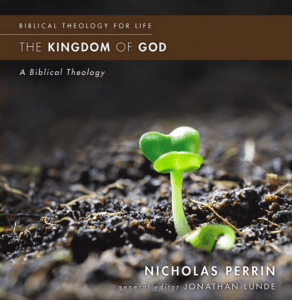 If Jesus was prophetic then the church that follows him is prophetic.
If Jesus was prophetic then the church that follows him is prophetic.
Do you believe in a prophetic word today? Not only do you think anyone speaks prophetically today, but do you see Scripture as the prophetic word?
Luke Timothy Johnson’s new book Prophetic Jesus, Prophetic Church examines these questions and probes what the church needs to hear today.
He sketches the two essential features of the prophetic word: it is a call to conversion (repentance), which is about God’s judgment on the human construction of this world, and it is a call to a life shaped by the covenant — and this means genuine repentance/conversion forms a politics of a new order. The message of Luke-Acts is the “kingdom of God,” and Johnson rightly argues this means God is King and that God’s people are to live under God’s Kingship in God’s kingdom.
Johnson contends, and I agree with him (and Joe Modica and I have just finished editing a book that will come out, we hope, this fall called Jesus is Lord, Caesar is Not, and this book will examine the anti-empire theories at work today) … anyway, back to Johnson, I agree that Luke-Acts is misread if seen through the lens of anti-empire ideology. Instead, it is a politics “more possible to be realized by small intentional communities than by worldwide administrations” and has to do with “deep derangement of human dispositions … a liberation from dispositions that corrupt all social programs and a demand for dispositions and actions that work for the transformation of all social practices” (74). [By the way, Johnson is very close to our King Jesus Gospel proposals.]
In other words, kingdom pushes to church; he has somewhat of an ecclesial view of kingdom.
He examines then the infancy narratives, John Baptist, Jesus, and the early church in Acts on understanding the word of God as prophetic: repentance, conversion, and concrete social transformation in the ecclesial body.
So what does this mean for today?
Johnson asks that Luke-Acts faces us and asks: “What do Christians really stand for?” (89).
Kingdom of God today: we see an already and not yet view of kingdom, and it is a summons at two levels, both necessary: personal and political. The “political” is not reduced to partisan politics in society but to an ecclesially based new society, and the personal is not reduced to personal pietism.
Repentance: not about remorseful guilt, which one can find today among some Orthodox, some Catholics, some Reformed … but is about an acceptance of God’s measure of reality and a commitment to live in that reality in the here and now. Johnson pushes against the soterian gospel and against the easy-to-find acceptance of a personal experience as the essence of repentance. Luke-Acts sits in judgment on this stuff.
Baptism and forgiveness of sins: baptism involved risk and danger and forgiveness, surely the great news of God’s gracious forgiveness and at the same time a summons to be people who forgive.
Big one: when we think of sins from which to repent, or if we listen to folks talk about which sins are most important to avoid, we move into the realm of sex. We have not a sex-repressed but a sex-obsessed culture, and Mark Driscoll needs to recognize the former is not the problem. Johnson says we need to see that Luke-Acts’ primary goal was possessions and wealth and a summons for kingdom people to embrace and embody an altogether radical vision of possessions and wealth.
Should Christians live in mansions?











